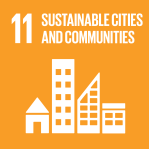Sustainable Development Goals
What are the Sustainable Development Goals?
The Sustainable Development Goals (SDGs), otherwise known as the Global Goals, are a universal call to action to end poverty, protect the planet and ensure that all people enjoy peace and prosperity.
These 17 Goals build on the successes of the Millennium Development Goals, while including new areas such as climate change, economic inequality, innovation, sustainable consumption, peace and justice, among other priorities. The goals are interconnected – often the key to success on one will involve tackling issues more commonly associated with another.
In order to monitor SDGs of the 2030 Agenda, a set of 241 indicators was approved at the global level, on which basis each country will be assessed at the regional and global level. The set of SDG indicators was developed by the group of experts (IAEG-SDGs) set up by the United Nations Statistical Commission (46th session), composed of 50 representatives of UN Member States and including international agencies as observers.
The global SDG indicator list includes 241 indicators, of which 230 indicators are unique, and 9 indicators repeat under two or three different targets. The SDG indicators are formed on the basis of the established global objectives and aim at reporting globally some indicators comparable in space and time. On the other hand, the global indicators aim at warning the governments about the most pressing issues and the need to prioritize actions at national and regional level, including by providing assistance for development.
Nationalization process of SDG's in the Republic of Moldova
Nationalization of Sustainable Development Goals (SDG) implies not only their integration into the national strategic framework, but also the establishment of a system of reporting and assessing the progress in achieving each relevant goal for the Republic of Moldova.
During the nationalization of SDGs, the global indicators will be supplemented with additional indicators that reveal the national context and priorities. While identifying national indicators, it is important to comply with the basic criteria for one statistical indicator, as to be universally acceptable and measurable, to correspond with particular quality requirements and to be relevant in the context of nationalized targets.























